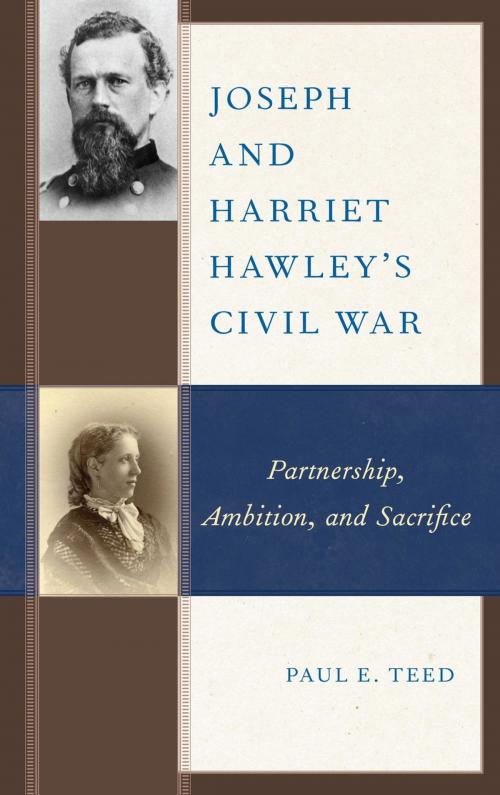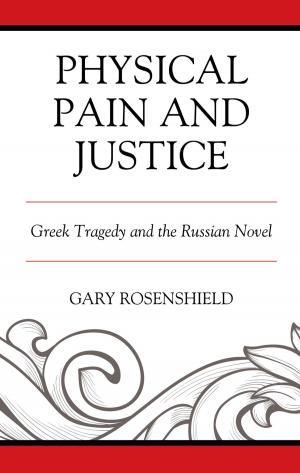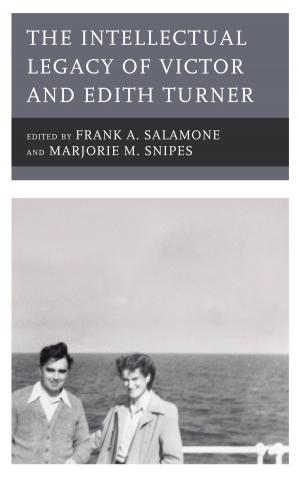Joseph and Harriet Hawley's Civil War
Partnership, Ambition, and Sacrifice
Nonfiction, History, Americas, United States, Civil War Period (1850-1877)| Author: | Paul E. Teed | ISBN: | 9781498504119 |
| Publisher: | Lexington Books | Publication: | November 15, 2018 |
| Imprint: | Lexington Books | Language: | English |
| Author: | Paul E. Teed |
| ISBN: | 9781498504119 |
| Publisher: | Lexington Books |
| Publication: | November 15, 2018 |
| Imprint: | Lexington Books |
| Language: | English |
This book explores the remarkable partnership of Joseph and Harriet Hawley, a married couple from Connecticut whose lives were transformed by overlapping experiences in the American Civil War era. When Joseph became the colonel of the 7th Connecticut Infantry Regiment in 1862, Harriet ignored family advice and social convention, and travelled to Union military headquarters at Hilton Head Island, South Carolina, where Joseph’s regiment was stationed. From that bold beginning, she spent the next three years as a visitor at field hospitals, a teacher at freedman’s schools, a wartime journalist, a ward nurse, and her husband’s informal advisor and publicist. Moving in and around the scenes of military action, she lived and worked in spaces usually reserved for men and took on responsibilities that implicitly challenged conventional understandings of women’s physical and emotional dependency. While Joseph struggled for recognition and promotion in the brutally competitive environment of Union military politics, Harriet shrewdly used her own personal contacts with power brokers in Hartford and Washington to protect his interests and those of his men. And as the terrible realities of the Civil War pushed them both to the brink of physical and emotional collapse, Harriet and Joseph remained committed to the cause and found ways to sustain their devotion to both Union and emancipation in the very worst moments of the conflict.
This book explores the remarkable partnership of Joseph and Harriet Hawley, a married couple from Connecticut whose lives were transformed by overlapping experiences in the American Civil War era. When Joseph became the colonel of the 7th Connecticut Infantry Regiment in 1862, Harriet ignored family advice and social convention, and travelled to Union military headquarters at Hilton Head Island, South Carolina, where Joseph’s regiment was stationed. From that bold beginning, she spent the next three years as a visitor at field hospitals, a teacher at freedman’s schools, a wartime journalist, a ward nurse, and her husband’s informal advisor and publicist. Moving in and around the scenes of military action, she lived and worked in spaces usually reserved for men and took on responsibilities that implicitly challenged conventional understandings of women’s physical and emotional dependency. While Joseph struggled for recognition and promotion in the brutally competitive environment of Union military politics, Harriet shrewdly used her own personal contacts with power brokers in Hartford and Washington to protect his interests and those of his men. And as the terrible realities of the Civil War pushed them both to the brink of physical and emotional collapse, Harriet and Joseph remained committed to the cause and found ways to sustain their devotion to both Union and emancipation in the very worst moments of the conflict.















